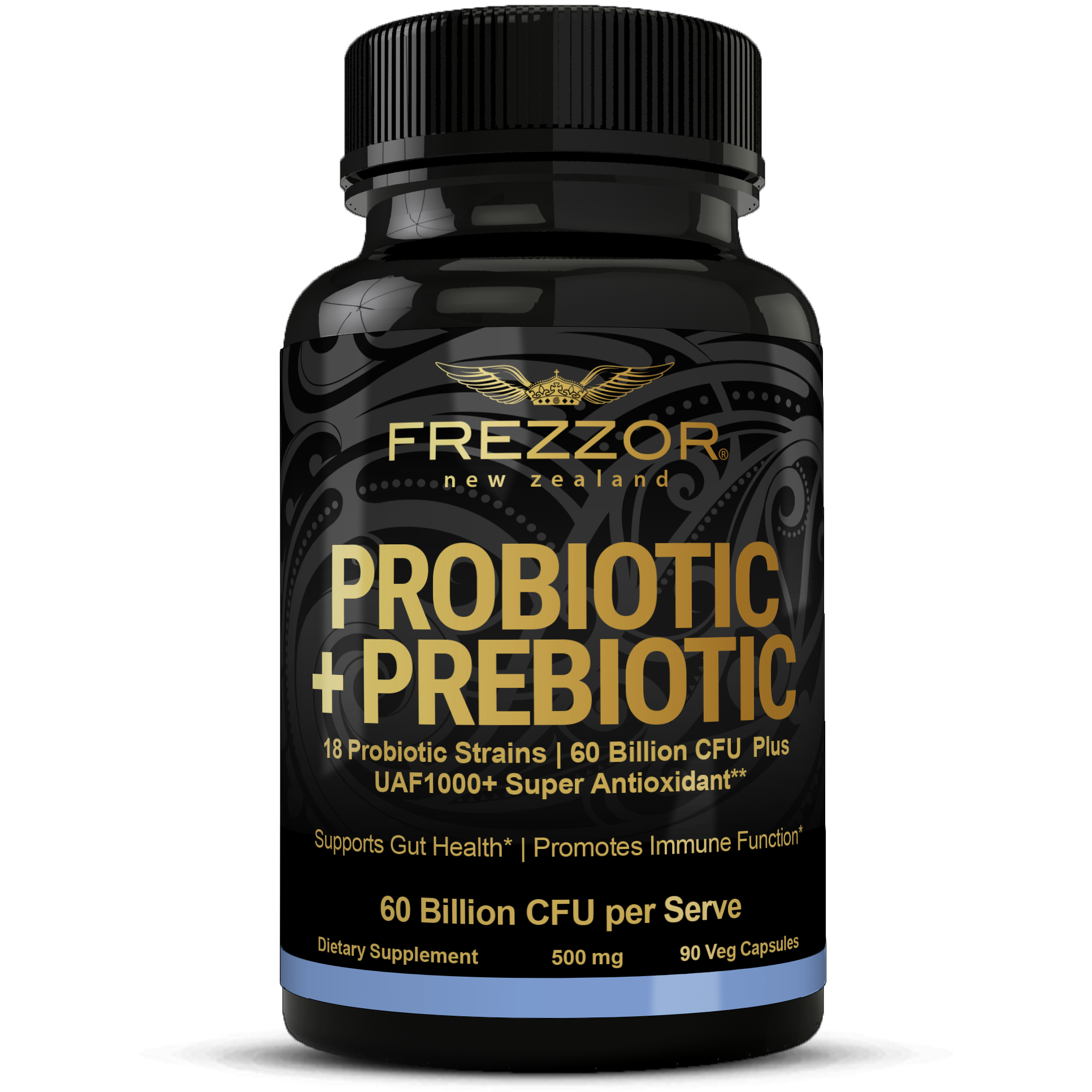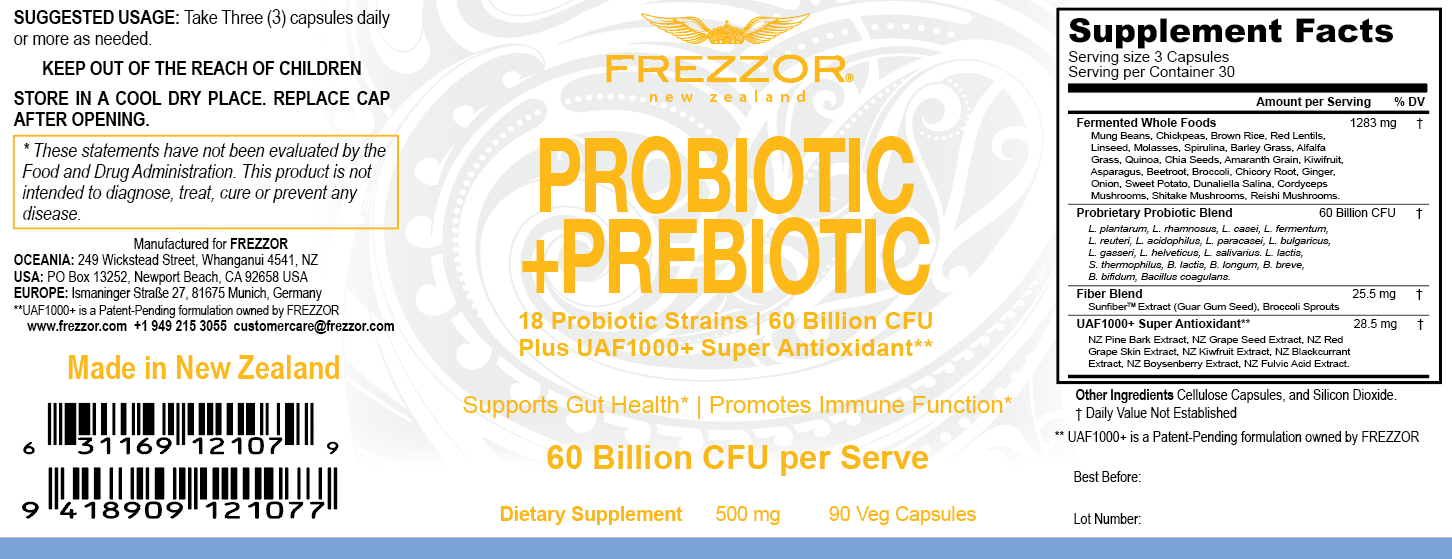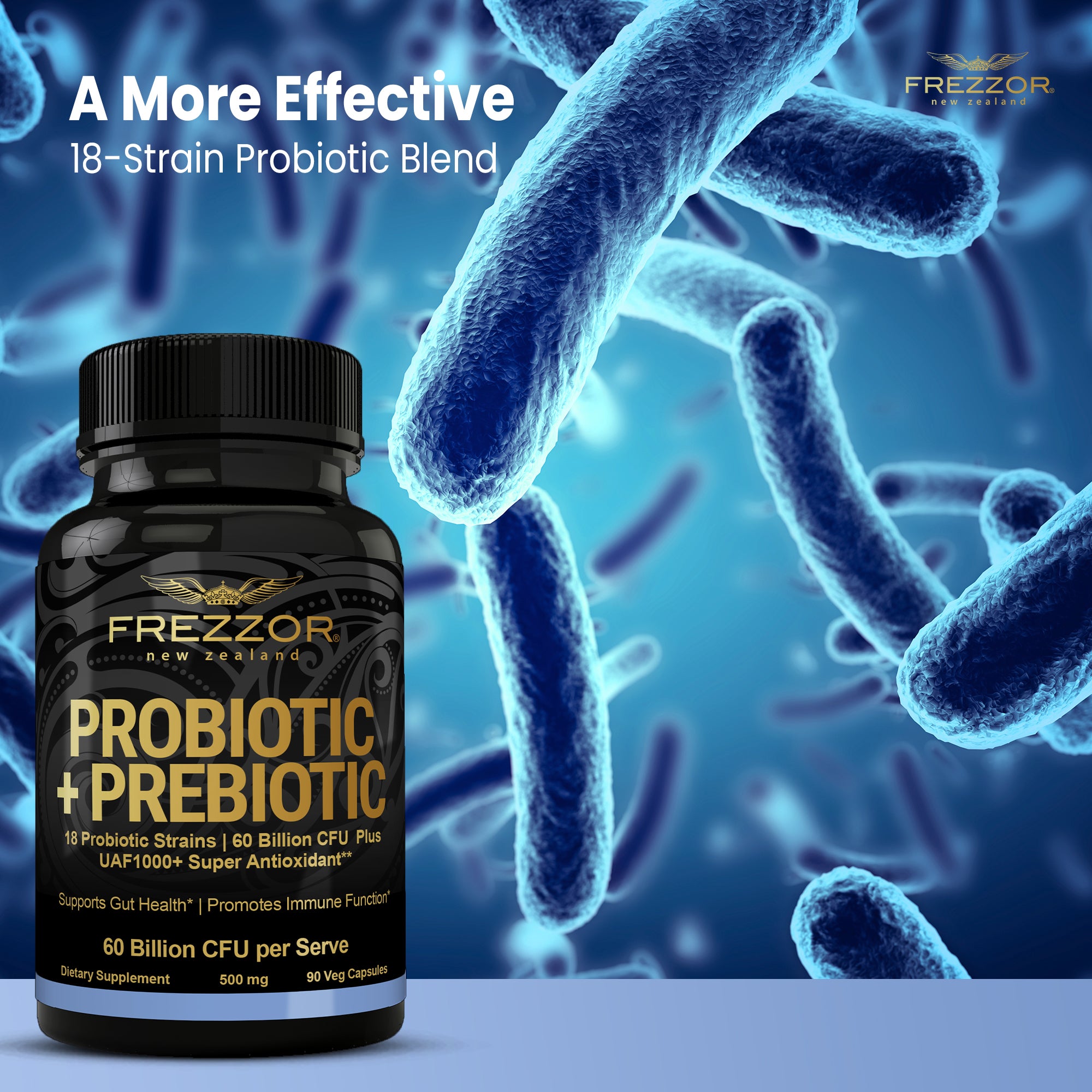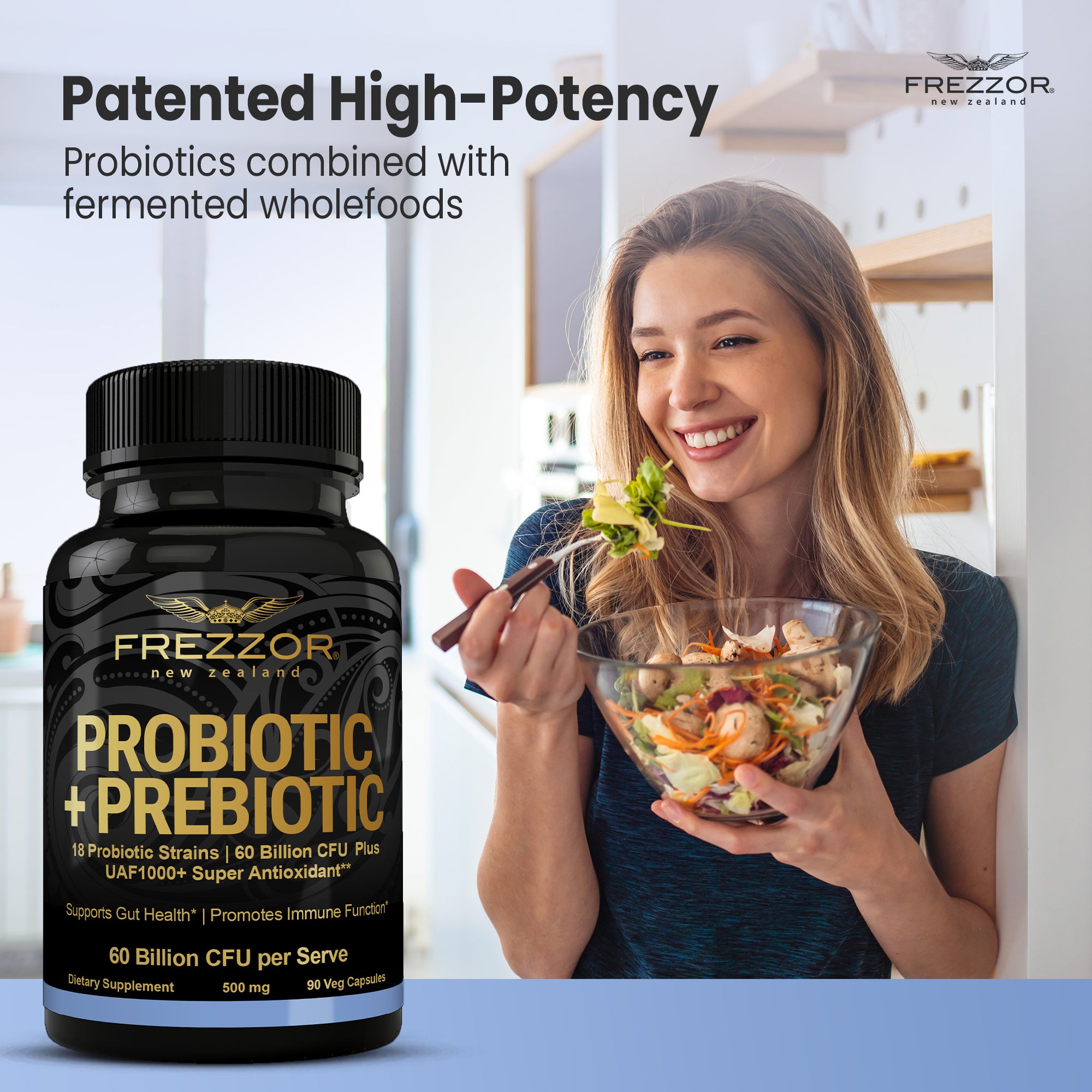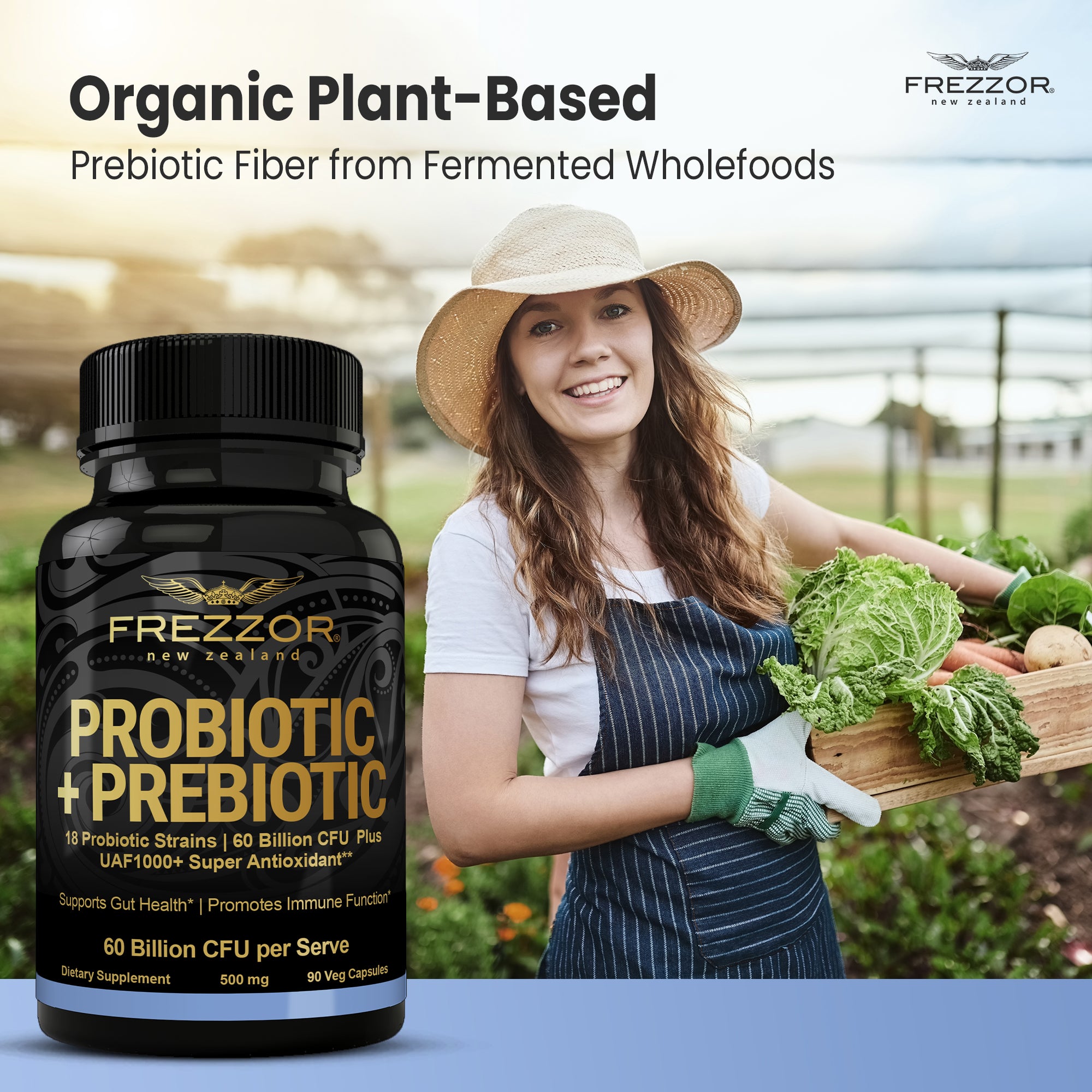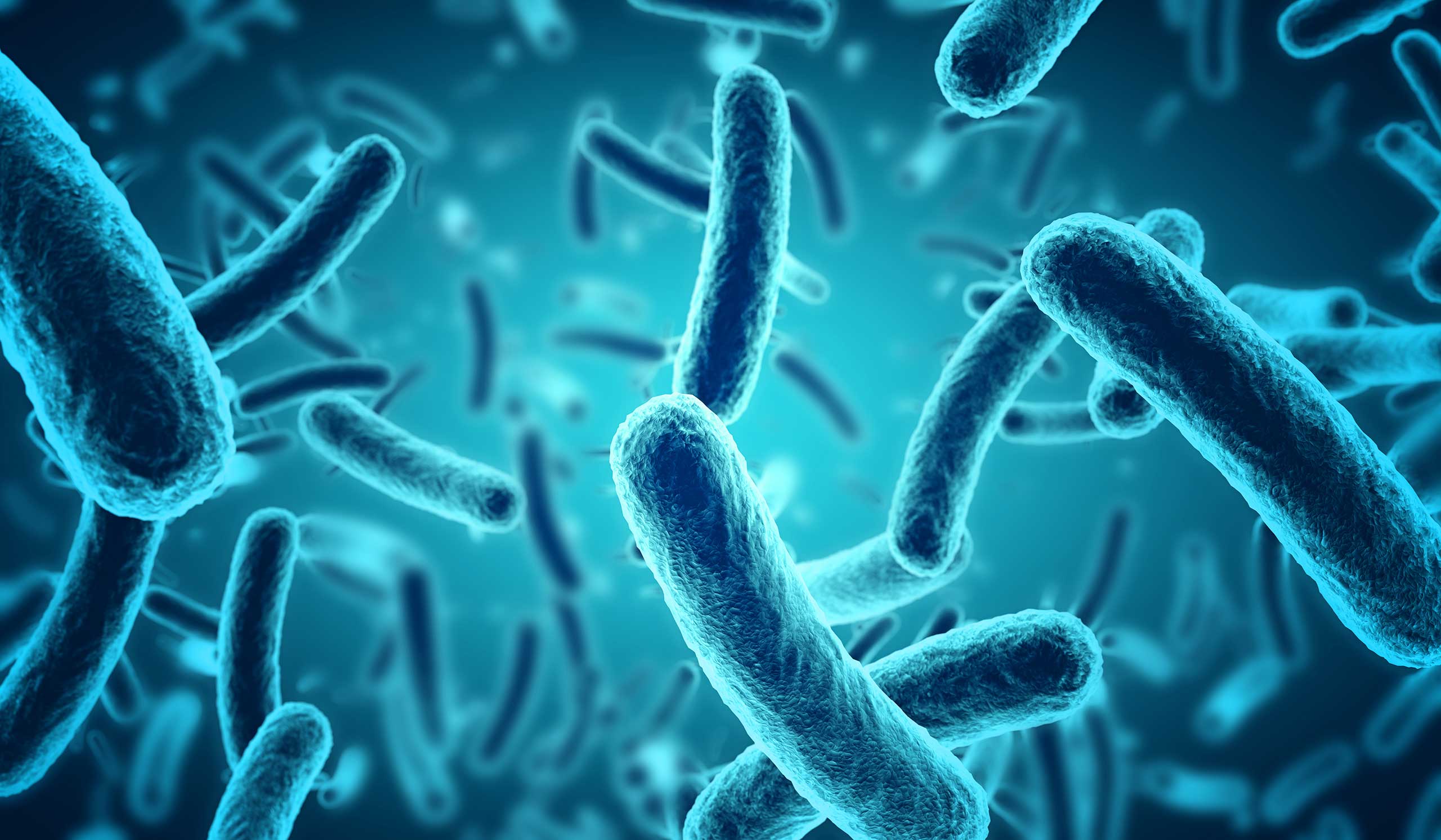
We developed a Superior Probiotic Blend containing more than 60 Billion live organisms, including;
Lactobacillus plantarum, Lactobacillus rhamnosus, Lactobacillus casei, Lactobacillus fermentum, Lactobacillus reuteri, Lactobacillus acidophilus, Lactobacillus paracasei, Lactobacillus delbrueckii subsp. bulgaricus, Lactobacillus gasseri, Lactobacillus helveticus, Lactobacillus salivarius, Lactococcus lactis subsp. lactis, Streptococcus thermophilus., Bifidobacterium animalis subsp. lactis, Bifidobacterium longum, Bifidobacterium breve, Bifidobacterium bifidum, Bacillus coagulans

We have added a Specialized Antioxidant and Fiber Blend to support our Probiotics.
Sunfiber Guar Gum Seed
Kiwifruit Enzyme
Broccoli Sprout
UAF1000+® Superfood Antioxidant

Our Fermented Wholefood Prebiotic Powder Is Made From 23 Superfoods
Mung Beans, Chick Peas, Brown Rice, Red Lentils, Linseed, Spirulina, Barley Grass, Alfalfa Grass, Quinoa, Chia Seed, Amaranth Grain, Asparagus, Beetroot, Broccoli, Chicory Root, Onion, Sweet Potato, Dunaliella Salina, Fresh Ginger, Shitake Mushroom, Cordyceps, Reishi Mushroom, Molasses
FAQ
FREZZOR Probiotic +Prebiotic
What are probiotics and prebiotics, and why are both essential for our gut?
Probiotics are microorganisms, the smallest living things or "good" or beneficial bacteria that reside on or in our intestines. Prebiotics are fiber and, at the same time, the proper and vital food for probiotics. Without prebiotics, beneficial bacteria, or probiotics, cannot survive.
What foods count as Fermented Foods?
Fermented foods include anything fermented, such as plain yogurt, kefir, buttermilk, sauerkraut, kombucha, miso, kimchi, apple cider vinegar, pickles, and yeast; in other words, anything that is fermented.
Did you know this about your intestines?
The intestine is the largest and the longest internal human organ, measuring up to 7½ meters. Even though the diameter of the intestine is only a few centimeters, your gut contains folds, millions of villi, and billions of microvilli whose total surface area is estimated to be between 250 and 500 square meters. Quite large, considering that a tennis court measures about 260 square meters. The fact that your intestine is so large has a sensible reason because during an entire lifetime, about 30 tons of food, toxins, microbes, pathogens, and indigestible substances and 50,000 liters of liquid pass through the intestine. To digest these quantities of food, a large contact area of the intestine with the food is therefore beneficial.
What are the tasks of the intestine?
The tasks of the intestine are many. It ensures the breakdown of food and the optimal absorption of essential substances into the body. In doing so, it must distinguish which food components enter the body and which food residues must be excreted again to relieve the body of harmful pollutants.
In addition, the intestine produces hormones and plays a significant role in regulating the water balance, which requires reabsorbing and excreting large amounts of fluid. One of the most important roles of the intestine is that it serves as a protective barrier for pathogens, which is why it's so important that you take care to keep your intestinal wall healthy, as well as your little beneficial billions of roommates, meaning your bacteria.
So the gut has several quite demanding tasks vital to your health. With FREZZOR Probiotic+Prebiotic, we want to help you maintain and promote your gut health.
What is the microbiome?
The microbiome is the sum of all microorganisms, tiny living things such as bacteria, and other single-celled organisms located on or in our human body. Humans have more living bacteria in their bodies than cells, about 390 trillion, the equivalent of about 2 kg of our body weight. 99% of the bacteria are found in our intestines, where there are about 1000 different species of bacteria. Bacteria have some essential tasks for the human body. They play an important role in digestion, production of vitamins, and defense against pathogens, and contain harmful germs. They also have a significant impact on our immune system.
Why is it so important to keep our gut flora healthy?
Intestinal health is of utmost importance to everyone. The intestines can be massively affected by years of consuming nutrient-less, industrially processed foods and medications such as antibiotics. Because once the intestinal health is out of balance, unpleasant symptoms can develop due to "bad" harmful intestinal bacteria and secondary diseases such as "leaky gut." Once the balance of the intestinal flora is disturbed, a so-called dysbiosis can quickly develop, in which undesirable microorganisms spread and take control. As a result, inflammatory processes of the intestinal mucosa occur. So it is crucial to have a healthy intestinal flora and intestinal mucosa, as well as a functioning intestinal-associated immune system and also an optimal interaction of all these components.

